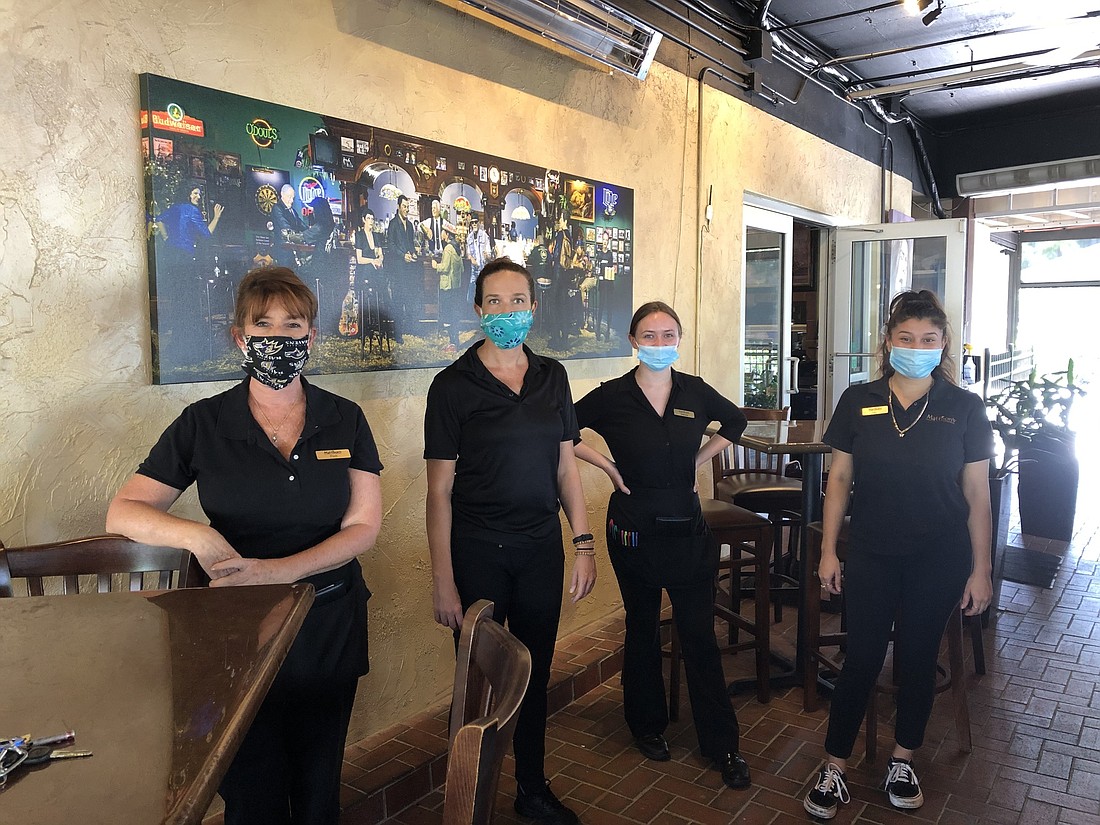- April 25, 2024
-
-
Loading

Loading

The COVID-19 shutdown nearly put Mattison’s Restaurants and Catering out of business. Faced with that reality, and a road filled with challenges ahead, owner Paul Mattison will do what it takes for the Sarasota-based restaurant group — which includes Mattison’s Forty-One downtown and Mattison’s City Grille, and Mattison’s Riverwalk Grille in downtown Bradenton — to survive.
“It was a great season,” Mattison said of the pre-pandemic business environment. “We were really rolling along well. We had a lot of things going, and then everything came to a screeching halt — all of our catering, everything completely dried up all the time. It was terrible.”
Mattison estimates that he lost $2 million to $2.5 million in revenue during the shutdown. The losses could rise to as much as $3 million when year-end accounting is done, he said.
“We’ll see what happens,” Mattison saisd. “Some of our catering work got rescheduled for the fall, so it’s a bit of a ‘jury’s out’ situation. Now we’re back at it, and we're chipping away, but our sales aren't great yet by any means. … It's a trickle.”
Mattison opted not to shift to curbside pickup and delivery sales during the shutdown, instead making the difficult decision to close all three restaurants and wait out the crisis.
Zigging when others zagged, for starters, seems to have helped, Mattison said. Keeping any restaurant open, even with a reduced staff for takeout and delivery only, costs money — in Mattison’s case, more money than it was worth.
"Do you settle for a few hundred dollars a day or a few thousand dollars a week when you just lost half a million?” he said. “You know, it just didn't make sense.”
Taking a place on the sidelines while other restaurants scrambled to adapt to a new business model worked out for Mattison, a veteran of the restaurant industry, because he had been stockpiling cash to make it through the summer doldrums.
“What I've learned, over close to 30 years now, is you have to put reserves aside all season long because you need them all summer to operate,” Mattison said. “We were having a strong season, and so I was pretty diligent about having some reserves in the bank, but not nearly what I want to have going into the whole off-season.”
But the coronavirus pandemic muddled Mattison’s math.
“Right now, we're OK,” he said, “and we've got enough in reserve to continue with cash flow, probably through July, but August and September are going to be tough months.”
Mattison said a key survival strategy was the use of cash reserves to pay for furloughed employees’ benefits. Combined with federal Paycheck Protection Program funds, that helped promote employee loyalty. Now that Gov. Ron DeSantis has lifted the stay-at-home order and allowed restaurants to reopen at reduced capacity, Mattison has been able to bring back most of his staff and quickly get up to speed.
About 70%-80% of Mattison’s staff have returned to work, he estimates.
“There have been a few people who have chosen not to come back,” he said, “but that's opened up opportunities for some of the catering staff that we didn't have work for.”
Mattison said lenders and vendors have been willing to work with him on payment deferral programs that should help his restaurants stay afloat. But he’s still applying for SBA loans. “I’m hoping not to have to use them,” he said.
What Mattison fears most is a second wave of the coronavirus pandemic in the fall, so he’s doing his part to prevent the spread of the virus. Employees are required to have their temperature taken when they arrive at work, for example, and they must wear face masks.
“I wish I could swab everybody when they walk in the door,” he said, “because you can be carrying [the coronavirus] and not realize it.”
Mattison encourages diners to wear masks via a daily “Maskerade Contest.” The diner with the most creative mask — either one they made at home or at the restaurant using supplied materials — wins a $25 gift card.